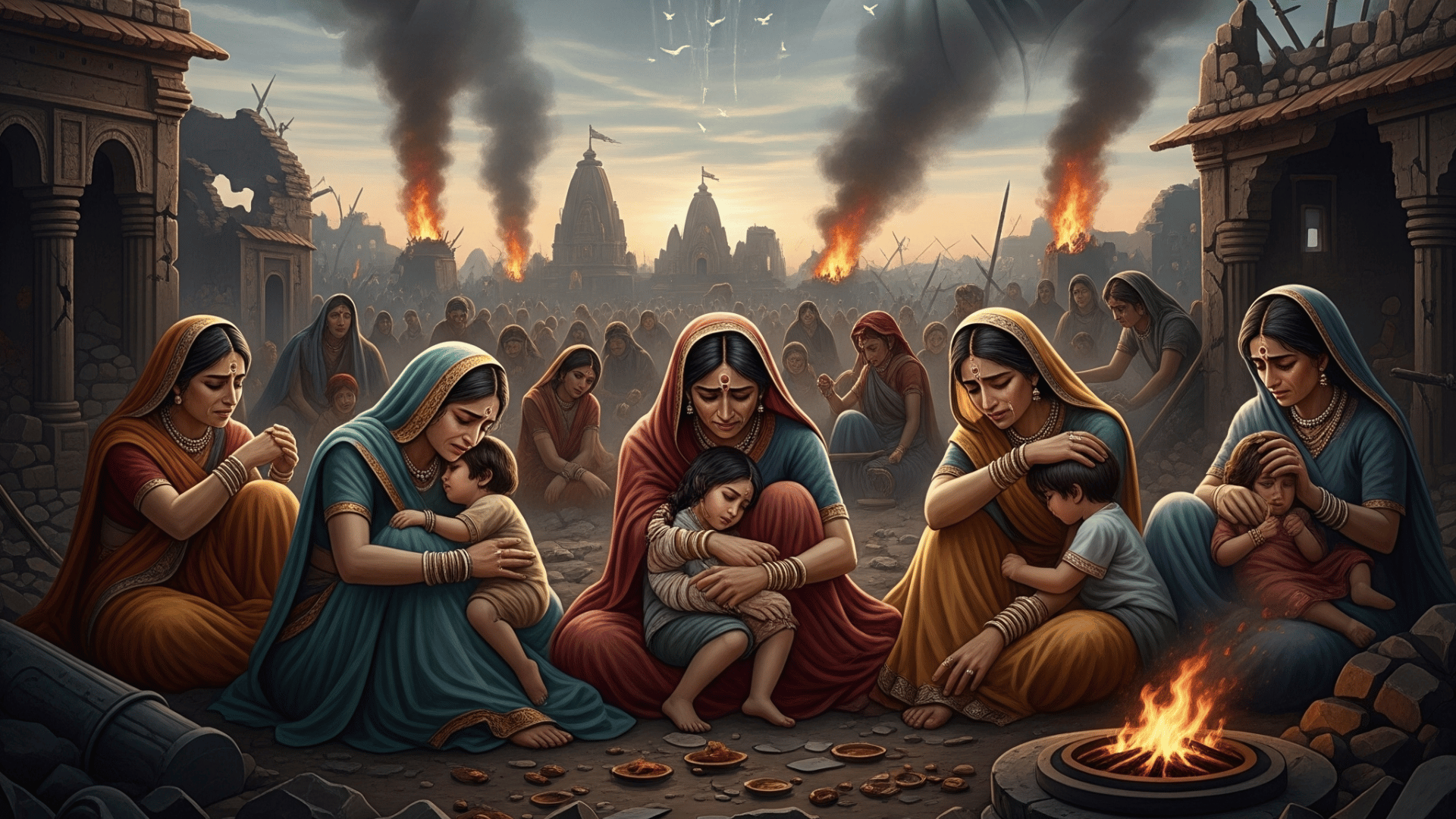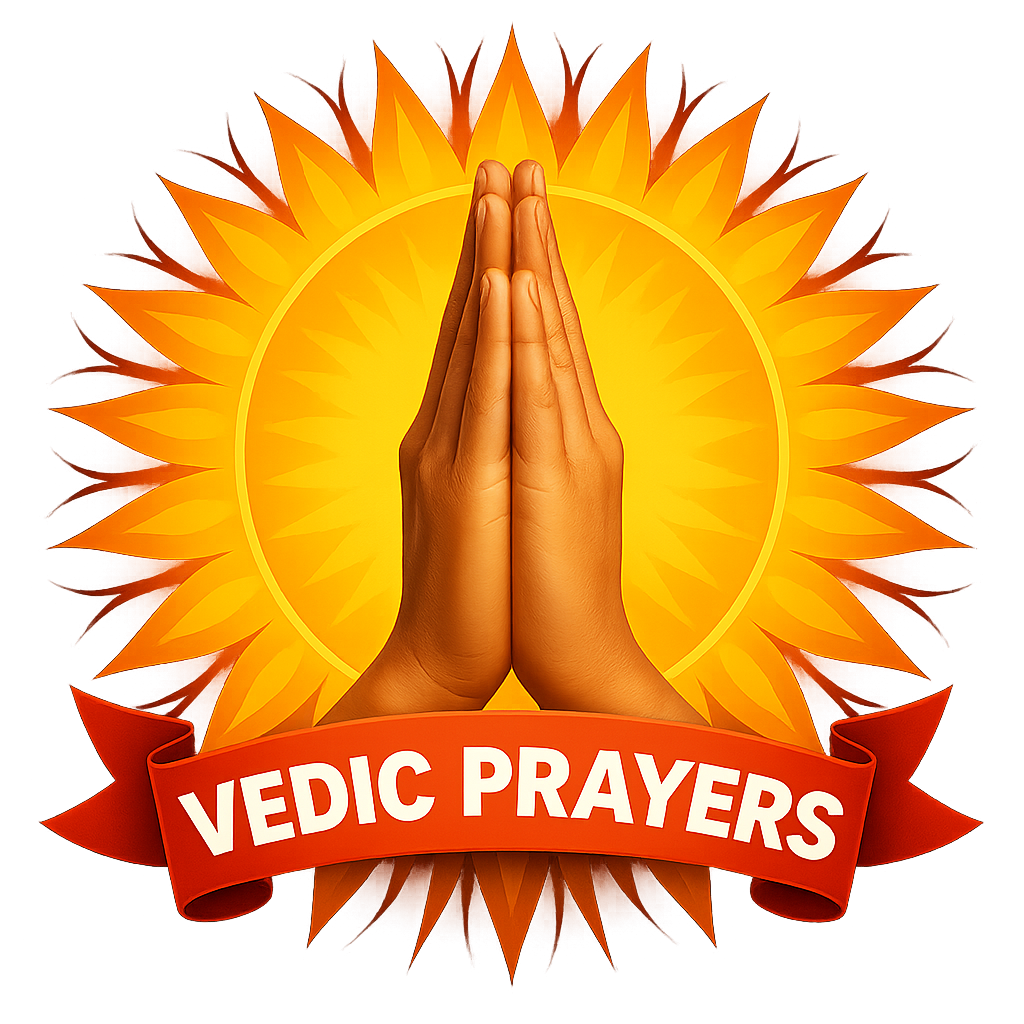
Chapter 1 – Arjuna’s Despondency
Verse 42
SankarH, narkaay, ev, kulaghnaanaam’, kulasya, ch,
Patanti, pitarH, hi, eshaam’, luptpindodakkriyaH ||42||
English Translation:
The mixing of varnas (social orders) arises solely due to the destruction of family lineages (kulgna – those who destroy families), and even the offspring of those women who have lost their husbands become morally corrupted. As a result, the ancestors (pitras), who were supposed to receive offerings like shraddha and pind daan (ritual offerings of food and water), also fall (lose their peace), because the tradition of these rituals comes to an end.
Simple Explanation / Elaboration:
This verse reflects Arjuna’s deep moral dilemma regarding his duties. He is seriously contemplating the consequences of war. He says:
“O Krishna! When the men of many families perish in war, their wives will become widows. In such conditions, their children may not be raised with proper guidance, which will result in ‘varna-sankara' – the mixing and degradation of social and family traditions.”
Here, Arjuna is particularly worried about the social system in which:
- Preserving the purity of family lineage and caste was considered an important religious and social duty.
- If this system collapses, future generations would drift away from traditions.
- And if no one remains to perform shraddha, pind daan, and jal tarpana (ancestral rites), the souls of the ancestors would suffer — they would remain in a suspended, unrestful state without attaining liberation (moksha).
Because of this emotional and spiritual crisis, Arjuna is inclined to abandon the war. He feels that if the destruction of families occurs due to his actions, he will become the cause of immense sin.
Philosophical Insight:
This verse does not merely point to the breakdown of the social order but also reveals that Arjuna’s hesitation is not out of fear of personal loss or defeat. He is deeply concerned about dharma (duty), cultural values, and the peace of ancestral souls. It showcases the depth of Arjuna’s character — a warrior engaged not just in battle with weapons, but also in an intense inner battle of ethics and conscience.
















